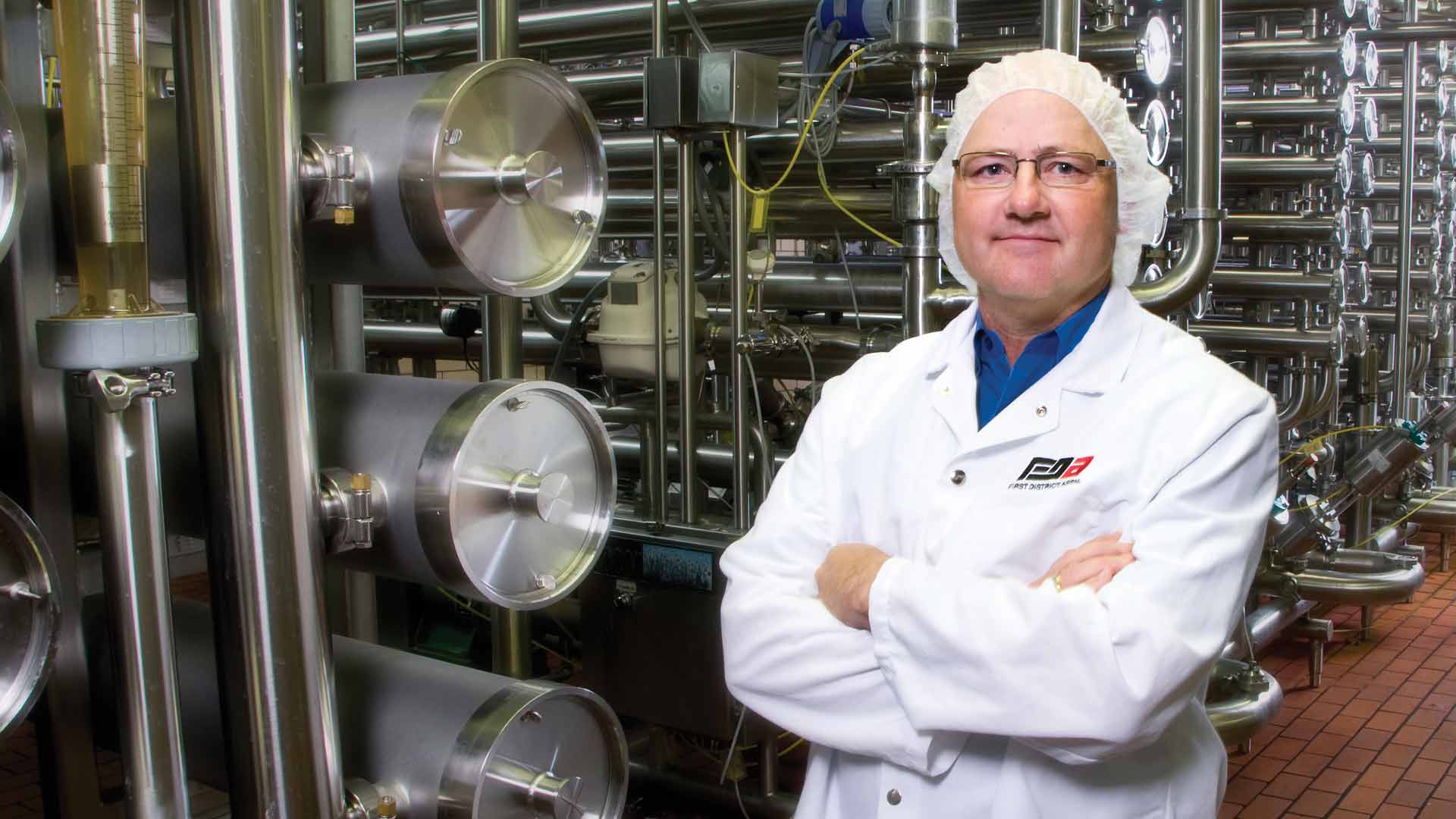A journey of a thousand miles begins with a single step, so says an ancient Chinese proverb.
But should a second step be taken?
That’s the question AURI asks of every new product and process it evaluates. As an independent examiner, AURI provides unbiased information to help Minnesota businesses and entrepreneurs decide if an emerging opportunity is truly feasible.
“No two projects are exactly the same, but one constant is the evaluation piece,” says Michael Sparby, AURI senior project director. All projects are evaluated to determine if they are worthy of committing further resources — and if there is real opportunity.
Whey ahead
First District Association of Litchfield is a producer-owned dairy processing cooperative owned by its 1,100 members. Processing 3.8 million pounds of milk a day, First District produces about 400,000 pounds of cheddar cheese, whey protein concentrate, condensed whey products and lactose (milk sugar) daily.
Several years ago, First District began looking at new technology to replace 30-year-old equipment for greater efficiency and new opportunities. AURI was brought in to help determine the project’s feasibility before the dairy processor made the commitment to move ahead.
“It’s never been our goal to see how big we can become versus how good we can become,” says First District President Clint Fall. “Our goal is to maintain the reputation and quality First District is known for.
“At the same time … we produce commodity dairy products used as food ingredients, so it is very competitive. We need to be competitive on a global basis.”
After a thorough evaluation, First District Association chose to move forward with the expansion and installed a state-of-the-art whey evaporator complex. It was one of the state’s first major dairy processing expansions in years.
The project created jobs for construction workers, pipe fitters, electricians and metal workers. It also increased the skilled workforce at the Litchfield facility.
“AURI played an important role in helping us to kick this project off,” Fall says, by assisting with “the planning and engineering of the equipment that was installed.” The engineering was followed by “construction of a multi-million dollar complex,” and could lead to future expansion, Fall says.
Cellulosic opportunity
Located between corn and timber country, Central Minnesota Ethanol Cooperative in Little Falls, Minn. has a history of being progressive and identifying ways to increase efficiency or reduce costs.
It’s a survival strategy.
“Central Minnesota Ethanol is a 20 million gallon plant, but we have to compete with 50 million and 100 million gallon plants,” says Steve Anderson, a farmer and CMEC board president. “We have to look at new technologies to keep our cost per gallon down.”
The co-op has completed a two-phase evaluation in its effort to become the state’s first cellulosic ethanol plant.
“We went to AURI and explained the project,” Anderson says. “What phase A brought out was, ‘Are there going to be any show stoppers along the way?’ AURI stepped up to help the partners who were looking at putting this together. Phase B has now been completed with a lot more detail.” The second phase contained more site-specific information on engineering, analysis and logistics.
Anderson says a cellulosic plant is very expensive to build, with an initial cost of about $10 per gallon, so a proposed 10 million gallon plant would carry a $100 million price tag. Due to the current economic environment, Central Minnesota Ethanol is holding off on the cellulosic expansion, but they do have the information they need to implement the project when and if the time is right.
Knowledge to implement
Sparby says AURI staff use a business principle of generate, select and implement. AURI projects are designed to generate needed information that businesses can select and then use to implement.
“The types of evaluations may change because it could involve a technical feasibility testing or a market assessment,” Sparby says. Whether the project is bioenergy, biobased products, coproduct utilization or food innovations, “what we are providing leads to knowledge and that knowledge ultimately leads to implementation,”
“Implementation is the key,” says AURI Executive Director Teresa Spaeth. “Innovation without implementation is merely creativity. We work to provide sound, unbiased information that helps Minnesota businesses and entrepreneurs create real opportunities, jobs and economic activity.”

